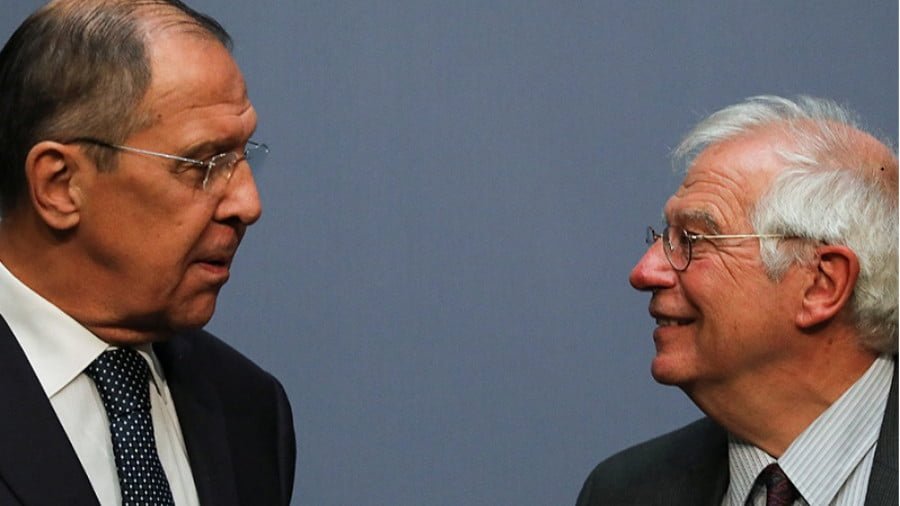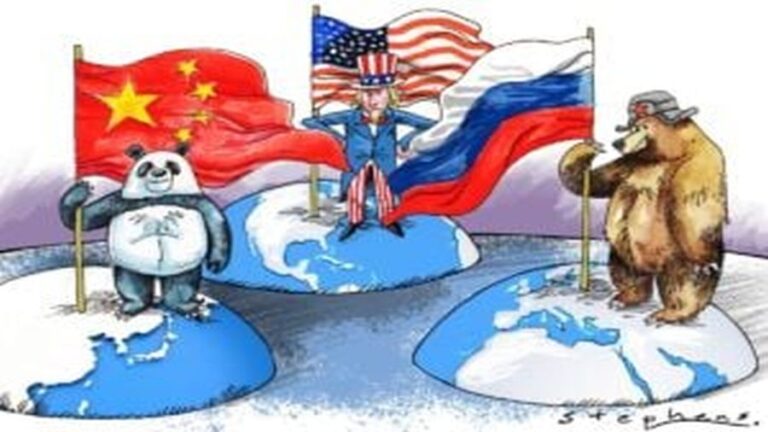Russia Needs to Realize That EU Diplomacy Is Based on Deception
Russia was left embarrassed after EU foreign policy chief Borrell suddenly flipped the script on his views about bilateral relations upon returning back to the bloc after what Foreign Minister Lavrov had previously thought was his constructive visit to Moscow just days earlier, though this incident might hopefully provide the long-overdue impetus for Russia to finally realize that EU diplomacy is based on deception and that no remarks from any of its representatives should ever be accepted at face value even if they were considered to be “candid” ones made behind closed doors.
Russia’s learning a much-needed and long-overdue lesson after being embarrassed by EU foreign policy chief Borrell following the surprise comments that he made after his visit to Moscow that Foreign Minister Lavrov had previously considered to have been a constructive exchange of ideas. Borrell flipped the script on what he had earlier implied during the press conference with his Russian counterpart just days prior by writing on his blog that he now believed that Moscow has no desire to improve relations with Brussels. The Russian Foreign Ministry responded by noting that he “had all opportunities to immediately deliver (his) personal evaluation” during the press conference, “No one restricted him either in time or in format”, but that “Perhaps, the EU foreign policy chief received explanations upon his arrival to Brussels on how to lay emphases, but in this case, it only proves who and how is shaping up the EU policies in reality.”
In other words, Russia feels deceived since it sincerely thought that its diplomatic counterparts’ views were sincere, especially those comparatively “candid” ones that were shared behind closed doors as is the norm in this profession. Nothing that Borrell said in public or private made Lavrov or his deputies think that he was giving them the runaround. After all, his public playing down of sanctions over Navalny and praise of Sputnik V were impressive goodwill gestures that they assumed he wouldn’t have done if he wasn’t sincere in his desire to improve bilateral relations. It therefore naturally follows that his remarks behind closed doors were probably very similar in spirit to the ones that he shared in public since it wouldn’t make sense for him to give them a tongue-lashing in private only to flip the script in public for the global audience’s sake. Russia’s diplomats are world-class and this is how they expect their counterparts to conduct their honorable profession.
Be that as it may, Russian diplomats were played for fools by Borrell, though they didn’t realize it until he returned back to the bloc and started blogging. There’s no doubt that the visit went smoothly, both in public and in private as was explained, so they had no reason to suspect any foul play until he surprised them with his online remarks. It might comfort Russia and/or help it “save face” to think that someone in Brussels or perhaps even further abroad pulled Borrell’s strings, but the argument being made in this analysis is that he was the one trying to pull theirs. To be absolutely clear, Russia did everything by the book during his visit and there wasn’t anything else that they should have done at the time considering all the positive signals that they received from him in public and in private, but at the end of the day, he seems to have just been faking them out. An analysis of his provocative blog post hints at what he might have been thinking at the time.
Borrell claims that his interactions with Lavrov were sometimes very intense even though he didn’t show it during their press conference. About that, he described it as “aggressively staged” and condemned the expulsion of some EU diplomats who violated their professional code of conduct by joining in unauthorized pro-Navalny rallies, though if that’s truly how he felt, then he did an excellent job disguising it. In hindsight, he should have made his feelings known right then and there in order to clear up any ambiguity created by his positive press conference with Lavrov. For some reason, despite Russia repeatedly — and in the eyes of some of its most passionate supporters abroad, almost embarrassingly — reminding its European counterparts of its deep-seated desire to enter into a rapprochement and reset their relations back to their pre-2014 halcyon days, Borrell wrote how convinced he now is that “Russia is progressively disconnecting itself from Europe”.
Truth be told, many Non-Russian Pro-Russians (NRPR) have publicly pleaded on the internet for years that this is exactly the course of action that Russia should have commenced seven years ago, with many expressing their frustration every time that Moscow obsequiously talks about what it still continues to this day to describe as its so-called “Western partners”. Instead, the learning experience of the past week taught by none other than Borrell himself should imbue Russian strategists with a fresh impetus to accelerate the “recalibration” of their Great Power’s “balancing” act towards China after its recent high-profile diplomatic disagreements with India, double down on its “Ummah Pivot” to Muslim-majority countries, and comprehensively expand relations with Africa. That doesn’t mean that they should abandon the Western vector of their diplomatic outreaches, but just that it mustn’t continue to take precedence over all others like it hitherto has.
As interesting of an observation as it may be, non-Western diplomats still tend to practice diplomacy in the classical way that it’s intended unlike their Western counterparts. The former are more sincere behind closed doors than the latter are, as proven by the embarrassing Borrell episode. The EU is trying to humiliate Russia by manipulating its diplomats’ professional expectations in order to turn them into fools on the world stage, something that Russia’s non-Western partners aren’t interested in doing. The bloc is doing this because of the power trip that it’s been on with American backing over the past seven years, believing (whether accurately or not) that Russia needs them more than the reverse since it’s always Moscow that’s requesting (or as critics claim, begging for) a rapprochement and never Brussels. Moscow was just practicing diplomacy in its classical way, but Brussels misinterpreted it as political desperation that it subsequently sought to exploit at every turn.
There’s truth to the Russian perception that the EU is mostly controlled by the US, but the former’s diplomats mustn’t rely any longer on that train of thought as an excuse for dismissing every blatantly disrespectful action that the latter’s commit. It’s time for Russia to recognize that the EU must take responsibility its actions, including its willingness to continue remaining mostly controlled by the US. Blaming America might score some rhetorical points with at home and among Western dissidents, but clinging to that belief and actually acting upon it by looking the other way whenever the EU diplomatically slaps Russia around risks leading to a loss of respect for this proud Great Power. Thankfully, Moscow’s recent expulsion of EU diplomats hints that it’s regaining its self-respect and belatedly recognizing that the bloc isn’t its friend. It can only be hoped that this is followed up by Russia confirming Borrell’s worst nightmare and finally distancing itself from the West.







